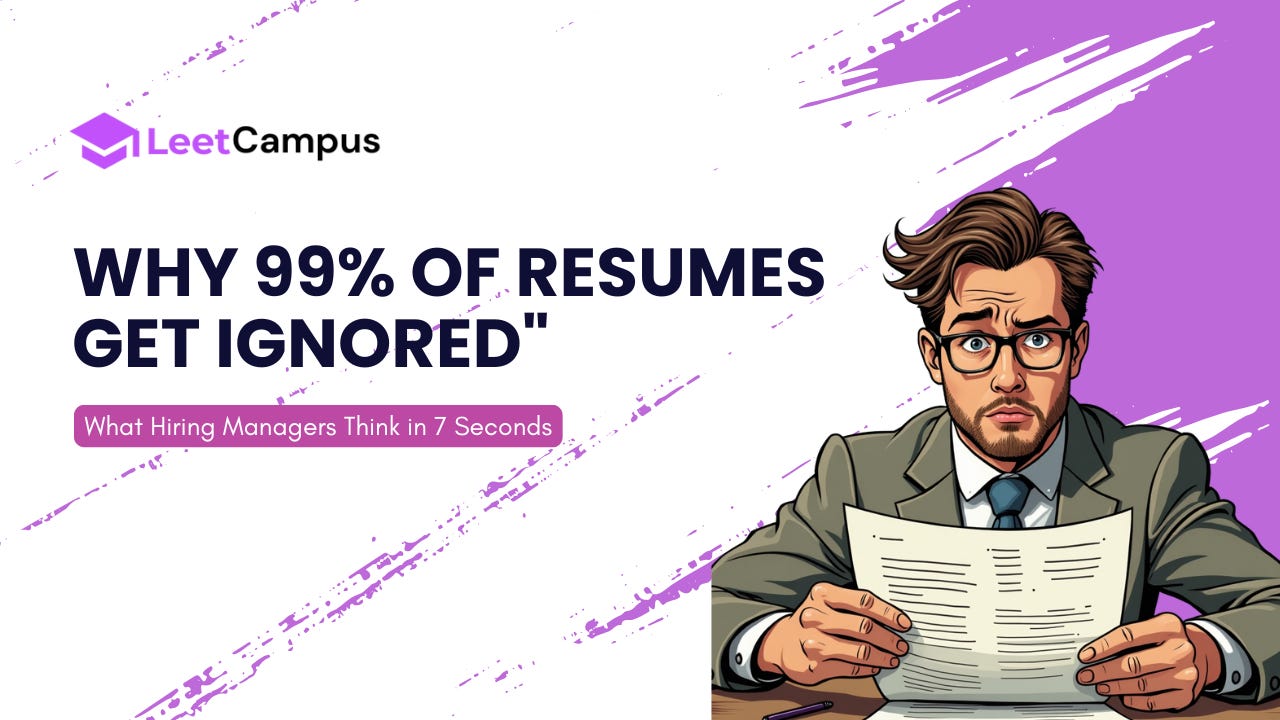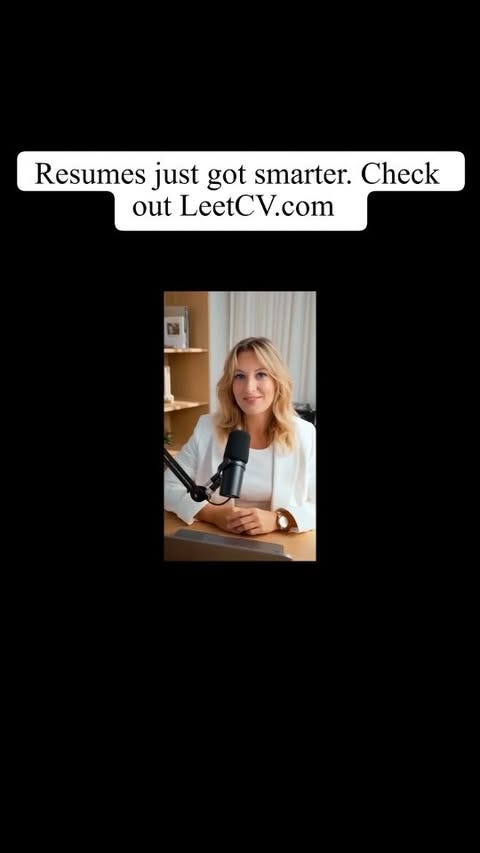The Silent Code: Why Your Resume Isn't Getting Past the First Line
What Sarah Learned After 47 Rejections That Changed Her Career Forever
It’s 2:47 AM. You’re staring at your laptop screen, cursor blinking mockingly in that empty cover letter box. Another job application. Another company that probably won’t even read past your name. Sound familiar?
The Moment Everything Changed
Sarah had been coding since she was 12. By 22, she could debug a recursive algorithm faster than most people could tie their shoes. But there she sat, rejected from her 47th job application, wondering if she’d somehow become invisible to the tech world.
The problem wasn’t her skills. It wasn’t her passion. It wasn’t even her experience.
It was something much more insidious: her story was drowning in silence.
The Silent Code We All Write
Here’s the truth nobody talks about in those “10 Tips to Land Your Dream Job” articles:
Your resume isn’t competing with other resumes. It’s competing with silence.
Think about it. When a hiring manager opens your PDF, they’re not comparing you to other candidates. They’re deciding whether you’re worth interrupting their mental silence for. Whether your story deserves space in their already overcrowded brain.
And most of us? We’re writing in a language that screams into the void.
The Language of Silence
“Proficient in JavaScript, Python, and Java”
“Strong problem-solving skills”
“Team player with excellent communication”
“Passionate about technology”
Stop. Just stop.
These aren’t words. These are echoes of every other resume ever written. They’re the technical equivalent of saying “I’m breathing and have a pulse.”
Breaking the Silence: The Art of Signal vs. Noise
The developers who get hired — the ones who break through that wall of silence — they understand something fundamental:
Humans hire humans. Not skill sets. Not keyword lists. Humans.
Signal: What Actually Matters
Instead of “Proficient in JavaScript,” try:
“Built a real-time chat application that handles 10,000 concurrent users because I got tired of existing solutions crashing during my online gaming sessions.”
See the difference? One is silence. The other is signal. One is forgettable. The other makes someone think, “I want to know more about this person.”
The Resume That Tells a Story
Your resume should read like the trailer to a movie someone actually wants to watch. Not the instruction manual to a microwave.
The Hidden Psychology of Hiring
Here’s what’s really happening on the other side of that submit button:
Hiring Manager’s Internal Monologue:
Resume #1: “Another JavaScript developer… next.”
Resume #47: “Wait, this person actually sounds interesting…”
The difference? Resume #47 understood that people don’t hire skills — they hire solutions to problems they didn’t even know how to articulate.
The Questions Your Resume Should Answer
Before you write another bullet point, ask yourself:
What problem did I solve that nobody else could?
What would have happened if I wasn’t there?
How did I make someone’s day better, easier, or more profitable?
These are the stories that break through silence.
Tools That Amplify Your Signal
The best developers I know don’t just code — they amplify their signal using every tool available:
1. AI-Powered Resume Optimization
Gone are the days of guessing what keywords to include. Modern AI resume builders can analyze job descriptions and optimize your resume for both human readers and ATS systems. It’s like having a career coach who never sleeps and has read every successful resume ever written.
2. Real Conversations, Real Connections
The strongest signal isn’t on paper — it’s in conversation. Platforms that facilitate genuine networking and academic collaboration help you build relationships before you need them. Because the best jobs aren’t posted on job boards — they’re filled through conversations.
3. Practice That Mirrors Reality
You wouldn’t deploy code without testing it. Why would you interview without practicing? The most successful developers use comprehensive preparation platforms that simulate real interview scenarios, not just algorithm puzzles.
The Code That Speaks
Let me share something that happened last month:
A junior developer named Marcus got hired at a company that initially rejected him. Same skills, same experience, different approach.
Round 1 (Rejected): His resume listed technologies. His interview answers were textbook perfect. His code was clean but predictable.
Round 2 (Hired): His resume told stories. His interview answers revealed his thought process. His code showed personality.
The difference? He stopped trying to be the perfect candidate and started being the interesting one.
Your 30-Day Signal Amplification Challenge
Week 1: Audit Your Silence
Print your current resume
Highlight every phrase that could apply to anyone else
These are your silence zones
Week 2: Find Your Signal
For each silence zone, write a story
What problem did you solve?
What was the outcome?
How did it feel?
Week 3: Test Your Stories
Share your new resume stories with friends
Which ones make them ask follow-up questions?
Those are your strongest signals
Week 4: Optimize and Deploy
Use tools to ensure your signal reaches its target
Apply to 5 companies with your new approach
Track the difference in response rates
The Silent Majority vs. The Signal Few
Here’s the uncomfortable truth: most developers will keep writing in silence. They’ll keep recycling the same tired phrases, wondering why their obvious talent isn’t obvious to others.
But you don’t have to be most developers.
You can be the signal that cuts through noise. The story that interrupts silence. The human that reminds other humans why they love working in tech.
The Next Line of Code
Your career isn’t a program that runs automatically. It’s a collaborative project between you and everyone you’ll ever work with.
Make sure your signal is worth their attention.
Make sure your story is worth their time.
Make sure your next line of code is the one that changes everything.
Ready to transform your career story from silence into signal? Start with the foundation — build a resume that speaks your language and connect with a community that amplifies your voice. Because the best developers aren’t just great coders — they’re great communicators of the value they create.
What’s your signal going to say?
About the Author
This post is part of our ongoing series about authentic career development in tech. For more insights on building genuine connections, optimizing your professional presence, and preparing for conversations that matter, explore our complete platform today!



